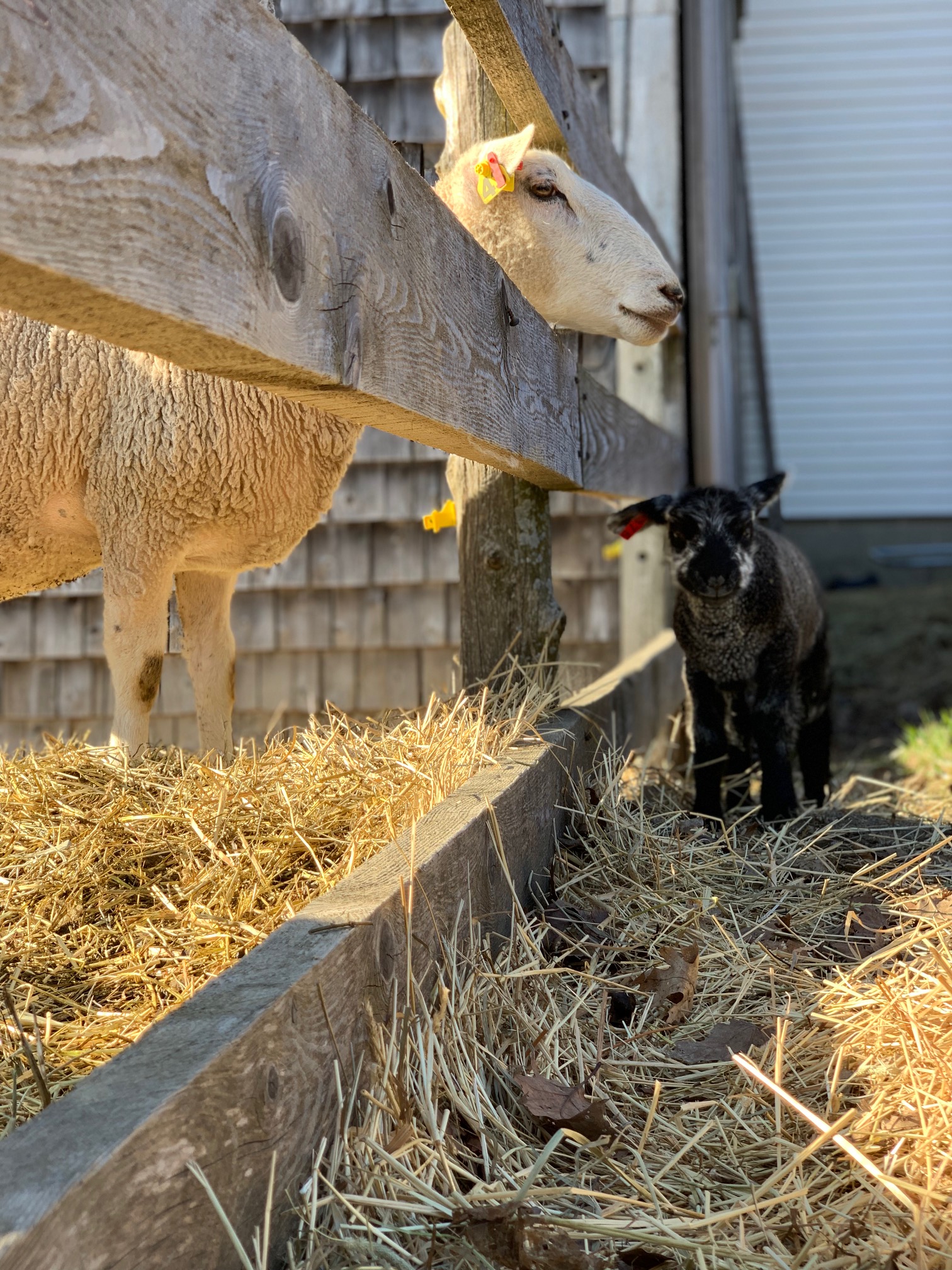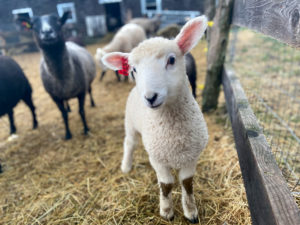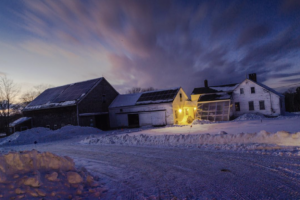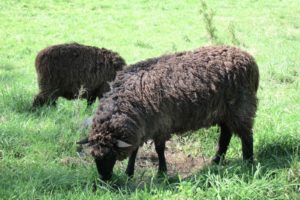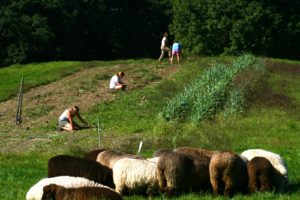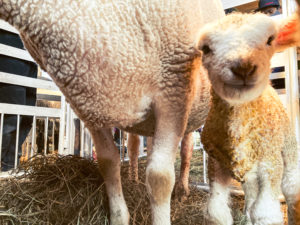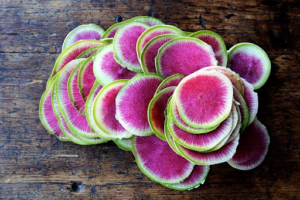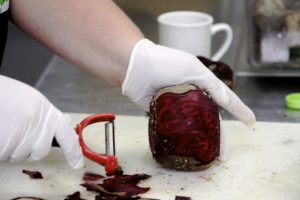Even in the best of times, our farm & food team is accustomed to reaching out. For several years we have maintained a relationship with the Midcoast Hunger Prevention Program and other local food banks to ensure the bounty of our farm never goes to waste in between programs, or when seasonal abundance outpaces the demand from our kitchen.
With the advent of the coronavirus outbreak, we find ourselves holding an embarrassment of riches: even while students are at home and on-campus staff have been scaled down to an essential minimum, our crops and livestock continue to produce, overflowing the bins, bags, and boxes of our larder with good, honest food.
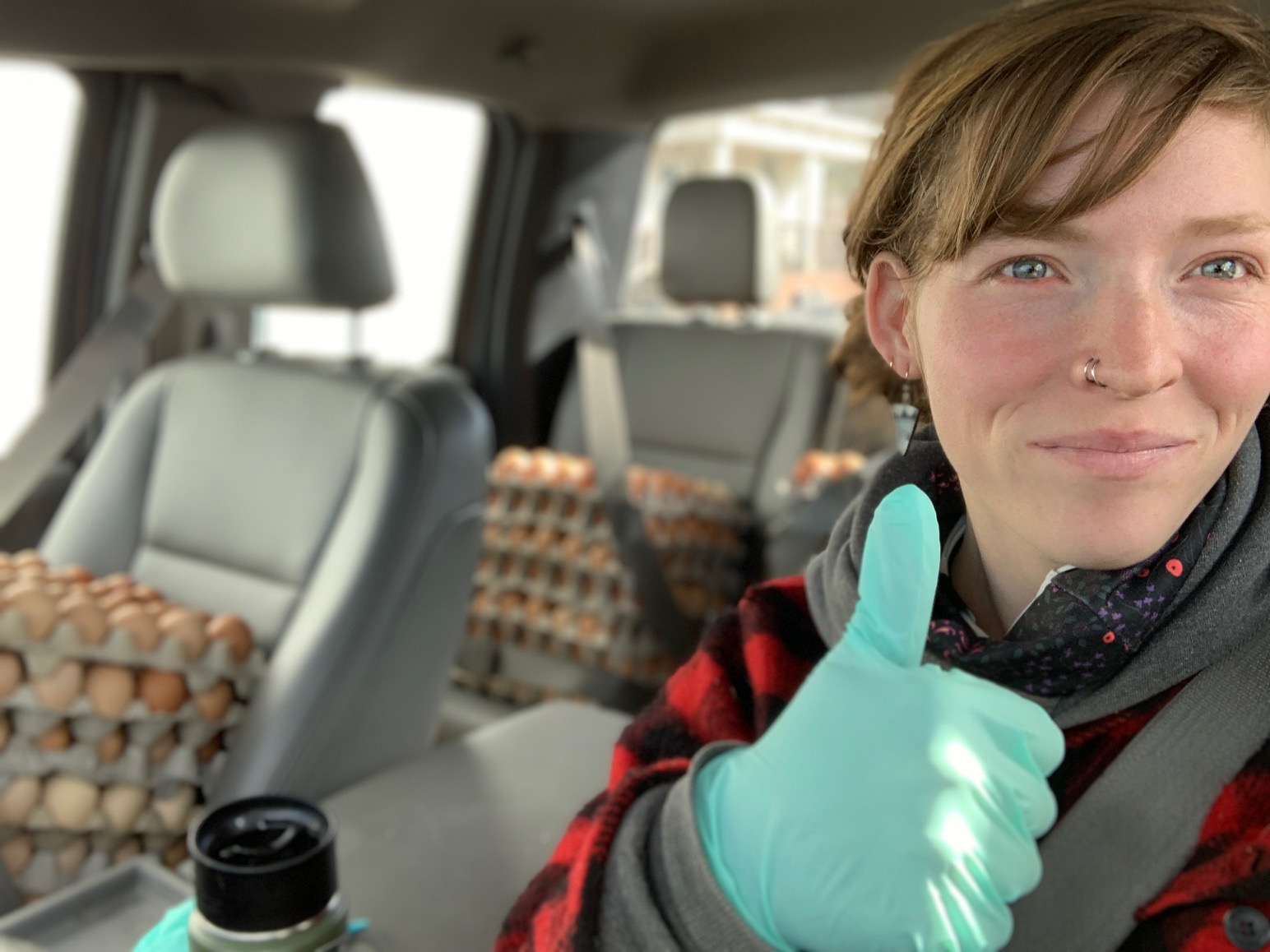
“We have been donating regularly, a couple of times a week,” says Chewonki farmer/educator Izzy Ruffin. “Since early March we’ve been able to contribute 44 full gallons of milk, 195 half-gallons of milk, 177 dozen eggs and almost 90lbs of fresh greens.”
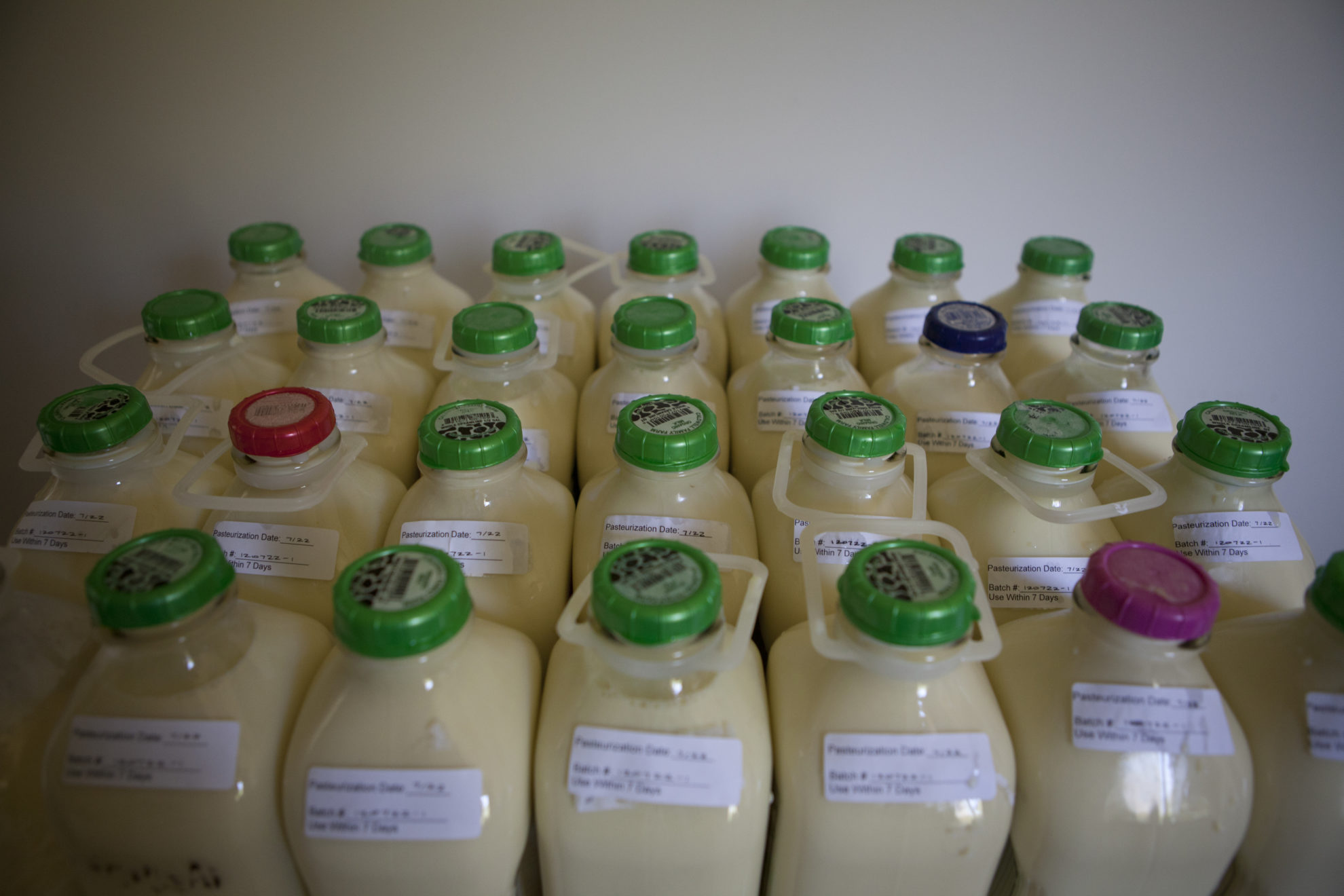
The economic impact of COVID-19 on mid-coast Maine has been dramatic. With record-breaking unemployment, school closures, and limited transportation options, many families find themselves struggling to afford nourishing food.
“Some food pantries have seen more visits from families in a few days than they normally see in a month,” says Chewonki farm manager Megan Phillips.
The social distancing measures and program suspensions at Chewonki have also had a profound effect on the farm and food team. “Our farm systems are set up to have many hands involved, deliberately labor-intensive,” says Ruffin. “‘Many hands make light work’ is especially true on our farm. Now we have a team of four.”
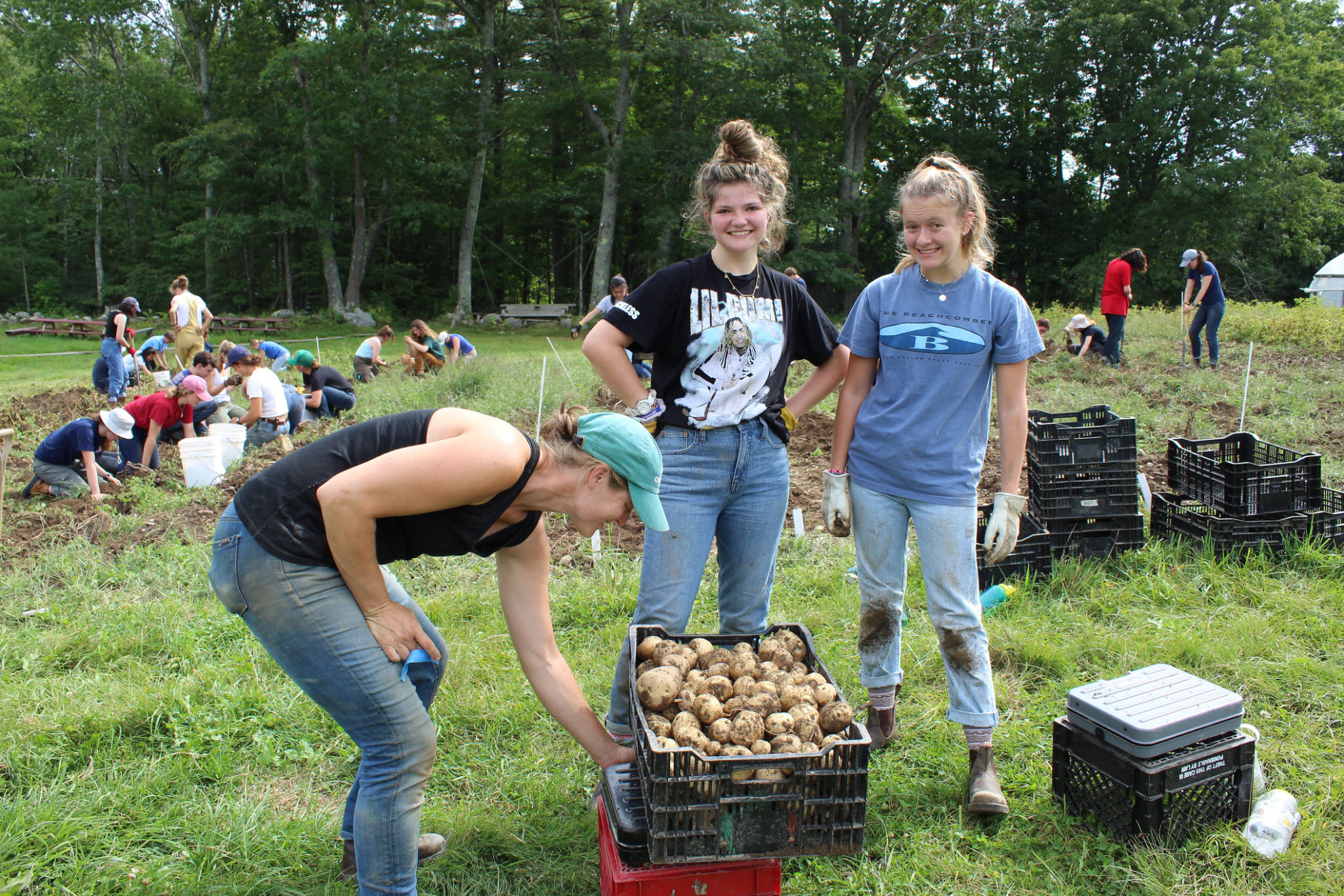
“One of the biggest adjustments has been this lambing season- students typically are a huge help as they volunteer for nighttime barn checks at midnight and 3 am,” says Ruffin. “The residential staff and faculty have stepped up to the plate and signed up for nearly every late-nite shift. It definitely takes some weight off our shoulders.”
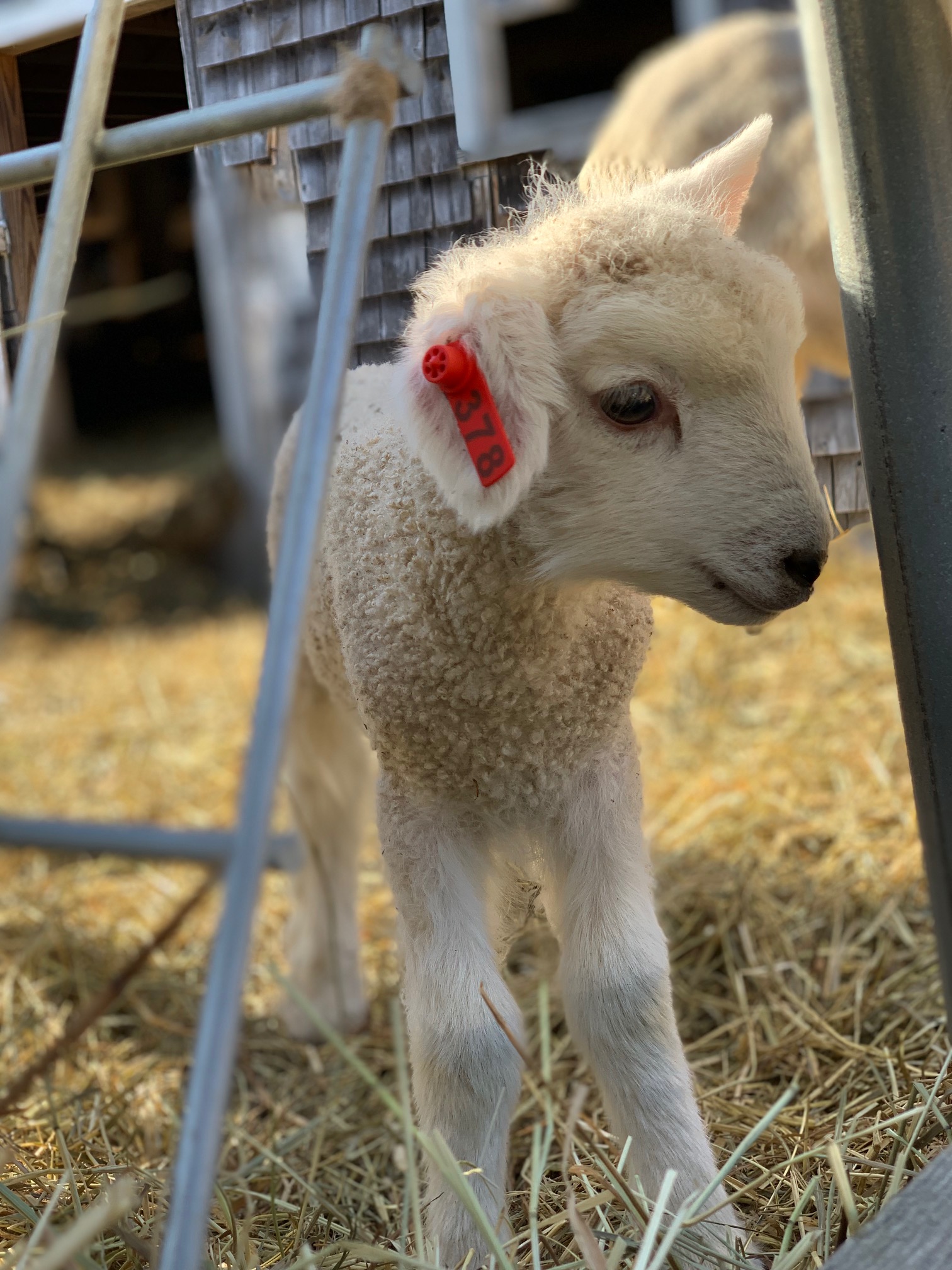
For Ruffin, and many others at Chewonki, the opportunity to give back locally is more than just a practical option. “This feels really important to me, personally, and something I would love to continue in the future,” says Ruffin. “I feel very connected to food security. As someone who grew up in a poor rural area, it feels important to do what we can with the resources we have to feed people in need in this time of great need. There are so many factors in play; the restrictions on travel, the lack of employment. I feel really proud that we have shifted [to this work] and feel thankful for the all the efforts that are also going on outside of Chewonki at food banks and other nonprofits.”
When asked about the rest of the spring and summer season on the farm, Ruffin seems upbeat. “The spring lambing season is going well. We usually aim to have at least 150% yield from our ewes and our goal was 15 lambs from our 10 ewes. Our current count is at 16 lambs, from 8 moms, with two ewes still waiting to give birth (Emily and Lainey). We’re doing great!
How are you supporting your local community? We want to know!
A core aspect of the Chewonki mission is “to build thriving, sustainable communities throughout our lives.” We know many of you are taking the COVID19 challenge seriously and diving deep into your own communities. We want to hear your stories! Each act of community engagement inspires more. Send us your tale of “life in the time of COVID19” – we would love to share your struggles, inspirations, and successes with the rest of the Chewonki community.
Email: communications@chewonki.org. Thank you!
